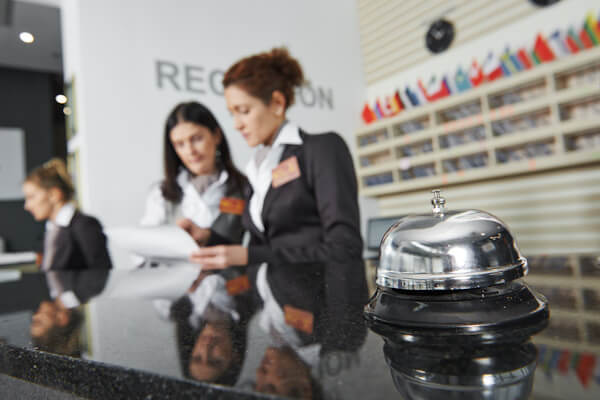8 Tips To Help Build Your Hotel’s Brand with Social Media
Social media represents an enormous opportunity for building your hotel’s brand. The vast majority of hoteliers know it’s no longer a question of whether to socialize their brands, but how best to do it. Use these tips as a starting point for developing your own social media strategy and creating an authentic social brand for your hotel.
1. Determine goals for your social media engagement
Hopping online without a focused plan is troublesome at best and disastrous at worst. Think about the goals you want to achieve by engaging in social media. Do you want to have conversations and provide customer service? Are you looking to drive direct bookings? Are you looking for brand advocates and influencers to help you extend your brand? All of these should be considered when setting goals. Once you have them in place, you can plan your social media strategy.
2. Determine your online brand persona
Before you get online, figure out how to communicate your brand in the social media world. Your hotel probably already has a
brand, so it’s important to establish a “social media voice” that matches your brand’s personality. What to consider:
- Your values or mission: what are your hotel’s differentiators? What do you do differently than the competition?
- Your visual style and brand identity: your social media presence should be consistent with your offline and traditional media presence.
- Your tone of voice: how you will be communicating online. Different social channels lend themselves to different tones. LinkedIn is more formal than Twitter, for example, and your audience is more likely to be colleagues than guests looking for customer service help.
Once you’ve decided how your hotel’s brand is going to live online, consider creating a handbook or reference document. This will help create consistency between your online and offline presence and will be a valuable resource for customer service, influencer outreach and crisis communications.
3. Decide on your platforms
Facebook, Instagram, Twitter, Google+, LinkedIn, and Pinterest are some of the most popular social platforms, but with hundreds to choose from and new ones popping up almost every day, how do you determine which ones are best for your hotel’s strategy?
Remember the time you took to decide your social media goals (see Tip 1)? Apply the same practice here. For hotels, Pinterest, Instagram, or Facebook are probably for you because of the ability to share images and videos. If your hotel’s social strategy includes customer service, you will also need the immediacy of Twitter.
Whatever platforms you choose, maintaining a social media presence takes a lot of time. The more platforms you’re on, the more time it takes. Not all platforms will be suited to your needs, so it’s worth taking the time to figure out what channels suit your hotel’s brand and message and best address the needs of your guests.
Social listening solutions like Revinate can help you locate where your customers are talking and who’s sharing information, whether they’re on blogs, Facebook, Twitter or Pinterest. Once you’re armed with this information, you can focus your social
media efforts and build your brand on the specific platforms that are best suited to your hotel.
4. Get a social media community manager
If you have the resources, it is in your hotel’s interests to dedicate a professional to social media who knows your hotel and your brand well. A successful community manager has excellent communication skills, the ability to build rapport and connections, and a keen awareness of your brand. He or she is essentially the “voice” of your hotel online and plays a critical role. Social community managers have been described as “A Jack of All Trades”. They’re brand ambassadors, crisis managers, customer service representatives, they handle budgets, develop and write content.
5. Take control of your customer service
Customer service is sometimes seen as the “killer app” of social media because it is an effective and immediate way to answer questions, resolve problems, provide solutions and reverse bad customer experiences. Community managers monitor online
conversations and keep an eye out for certain positive or negative keywords.
To let a customer’s problem fester and go unanswered on a blog, Twitter or Facebook is just as bad as letting bad reviews go unanswered on TripAdvisor–it’s asking for trouble because it suggests your hotel doesn’t care and is not listening to
what its guests are saying. The goal of a community manager is to be proactive and reach out to guests on social media.
One key point: Just as you cannot delete negative feedback on review sites, you should not delete negative comments on social media.Negative feedback is perhaps the single most underrated opportunity for reputation management the social web has to offer. Publishing and responding to negative reviews opens the door for several online marketing opportunities, and by deleting them, you might miss the chance to turn negatives into positives, gain valuable feedback from the free focus group that social media creates, and even improve your hotel’s reputation by being willing to acknowledge mistakes and learn from them.
6. Have a pre-determined hotel crisis management plan
When something unexpected happens that could damage your hotel’s reputation, social media monitoring can be a crucial tool to handle the crisis. Here’s what you need to do to have your brand ready for a crisis:
- Get real-time insight. Often crises can be managed effectively or even defused by having real-time insight
into what’s happening, and discovering who is leading the conversations. Realtime information allows you to take charge of a potential crisis and control the outgoing message. - Make sure you’re listening. A properly configured social media monitoring platform lets you stay on top of positive and negative conversations about your company.
- Stay alert. Ensure your community manager is notified when keywords pop up in conversations. Revinate’s social search feature is a great way to stay on top of specific mentions on social media.
- Empower your people. Your community manager needs to be able to take action without waiting for permission.
- Be proactive. Don’t wait for customers to reach out if you see a crisis. Reach out to them and offer solutions. This can turn them into brand advocates and extend your hotel’s reputation.
7. Build relationships with the media
Remember, it’s not just your customers who are important in your brand-building efforts. The media plays a critical role too. You can’t build your hotel’s brand without building relationships. Journalists and bloggers use Twitter to find trends and sources. Follow the journalists and bloggers you would like to pitch—their tweet stream will be a wealth of information about their activity. Retweet them and answer questions should they put out any queries. Comment on any pertinent tweets they post, offer expert sources for their stories should they ask. Talk to them even when you don’t have an announcement. Journalists like
knowing what’s going on.
8. Find influencers
It’s a simple fact: People go to their friends and family for advice on where to book their next vacation. Tapping into the vast network of influencers will help you build your brand and drive more direct bookings.
A social media influencer is someone with a lot of online clout who leads conversations and shapes opinions about organizations and brands. You can identify major influencers by how socially active they are, how organically their messages are reposted or retweeted, how many followers they have, the influence of their networks and how connected they are in general.
A great way to engage with potential social influencers is through a targeted marketing campaign. If you can segment the guests with large social followings and target them with personally relevant communications and offers, you can start to develop that relationship with them further. Their word-of-mouth recommendations will influence their networks to book.
Want to drive more direct revenue and connect with guests? Download our free Email Marketing Strategy Guide. Never before has there been a more jam-packed, industry-specific guide to help hoteliers master the art (and science) of email marketing. Over 40+ topics with actionable insights, strategies, and best practices for email marketing.
Related Posts

Insights that drive results
Subscribe now to get the latest content
This site is protected by reCAPTCHA and the Google Privacy Policy and Terms of Service apply. *Required fields.



